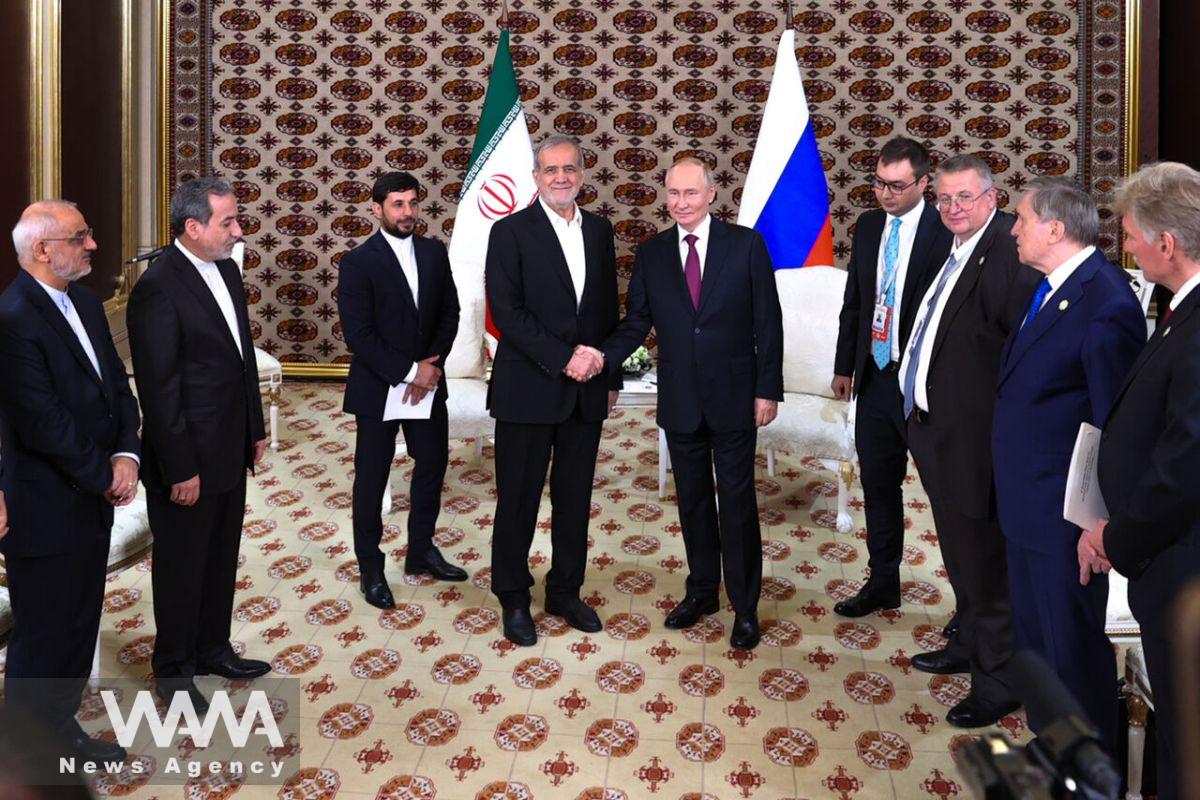Will Putin Favor Israel Over Iran?
WANA (Oct 13) – Nearly three years into Russia’s military invasion of Ukraine, it appears that the situation has never been more promising for the Russians. Following the start of the war, Russia began establishing relations with Palestinian delegations and even hosted Hamas representatives.
Moscow’s gesture was so well-executed that Palestinian officials publicly expressed their gratitude to Russia during a TV program.
At the time, some in Iran naively believed that a confrontation between Moscow and Tel Aviv would ensue after the Ukraine war began.
Former Israeli Prime Minister Naftali Bennett’s early conversations with Putin during the Ukraine conflict, in which he received assurances that Putin would not assassinate Zelensky, reveal the deep ties between Israel and Putin, even after the war started.
Anyone familiar with the structure of power in Russia knows the significant influence of Zionists in the country. It’s also clear that a confrontation between Moscow and Tel Aviv, or Moscow siding with Tehran against Israel, is highly unlikely.

Condemnation of Genocide in Gaza and Attack on Lebanon from Tehran to Ashgabat
WANA (Oct 12) – Participating in the international conference “Interconnection of Times and Civilizations – Basis of Peace and Development” and meetings with the presidents of several countries were among the highlights of the recent visit of the Iranian President to Turkmenistan. Although the President of the Islamic Republic of Iran traveled to Ashgabat […]
After Russia’s symbolic support for the Resistance Axis, which boosted the confidence of certain resistance groups by implying they had the backing of a major nuclear military power and a permanent member of the UN Security Council, we saw the real face of Russia.
Following the October 7 operation and the Israeli assault on Gaza, Russia effectively abandoned the Palestinians, failing to take meaningful action to halt the attacks.
Just as Putin once spared Zelensky’s life through a conversation with the Israeli Prime Minister, he could have potentially saved the lives of Palestinians or Hamas leaders by reaching out to his old friend Netanyahu.
This lack of substantial support also extended to Hezbollah. After Israel’s widespread attacks on southern Lebanon and threats to assassinate Hezbollah’s Secretary-General, Russia’s response was limited to a few token statements.
Its not forgotten how Putin’s image was plastered on billboards in Lebanon, and some naive figures in Iran and the Resistance Axis hailed him as a new defender against the Zionists, even claiming that Russia would fight Israel alongside them.
At that time, we discussed Russia’s strategy of diverting attention to the occupied territories to ease Western pressure on Ukraine. This was part of a broader Russian plan.

Kremlin: Putin Eager to Meet with Pezeshkian
WANA (July 29) – Dmitry Peskov, the Kremlin spokesman, mentioned that the new President of the Islamic Republic of Iran has previously been invited by Russia to participate in the BRICS summit in Kazan. He emphasised that Russian President Vladimir Putin is eager to meet with Masoud Pezeshkian. Peskov stated that Iran, as one […]
Now, a year after the Resistance Axis faced off against Israel, with tensions escalating between Tehran and Tel Aviv and Western aid pouring into Israel, Russia is implementing a sinister plan it had prepared for years.
Russia has now reached the point where it can leverage Iran and the Resistance as bargaining chips. This could explain the delay or refusal to deliver the Su-35 jets to Tehran, as these aircraft are part of Russia’s game with the West during times of heightened tension between Iran and Israel.
If, as some Western analysts suggest, Zelensky’s tone softens, or if you hear news of Russian advances in Ukraine or even reconciliation between Moscow and the West, don’t be surprised. Putin may achieve what he couldn’t on the battlefield in Ukraine by playing the Iran and Resistance card.
Some experts argue that perhaps Iran hasn’t given enough to Russia to deserve the Su-35s. But this raises the question: Did Egypt’s military, funded by the U.S. and Arab nations, offer more to Russia than Iran has, given that Russia sold the Su-35s to Egypt but not to Iran?
Recent events show that history is not a guiding light for future. Iran sacrificed the economic benefits of the Ukraine war to support Russia and ceded energy markets, and now Russia is reaping its rewards from the Resistance’s struggle against Israel, a battle led by Tehran.

Pezeshkian meeting with Vladimir Putin, the President of the Russian Federation. Oct 2024. Social Media / WANA News Agency












